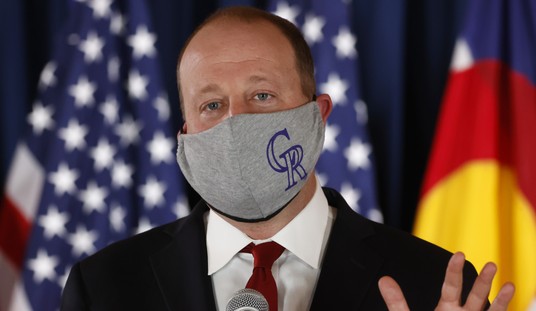If you’ve planned to spend spring break in the tourist resorts of the Yucatan Peninsula, you may want to reconsider.The State Department abruptly closed the US consulate in the popular tourist destination of Playa del Carmen late Wednesday evening and ordered US government employees to stay out of the area. They warn other Americans either in the region or thinking of traveling to it about a “real crime threat” from local drug cartels:
The State Dept. abruptly closed the U.S. consulate in Playa Del Carmen, Mexico, and is prohibiting all U.S. government employees from traveling to the resort town. Government sources tell CBS News this is because of a “real crime threat” connected to warring drug cartels: pic.twitter.com/AVY3XnUNsD
— CBS News (@CBSNews) March 9, 2018
Mexico denied any such issues exist, however, and noted that the president attended a conference in the city yesterday:
The government of the Caribbean coast state of Quintana Roo said that President Enrique Pena Nieto was scheduled to attend an ocean conservation conference in Playa del Carmen on Thursday.
“All tourism and economic activity in Playa del Carmen continues in a normal manner,” the state government wrote in a statement, noting that hotel occupancy at the resort was 80 percent.
“We do not know why the U.S. government decided to emit this alert,” the government said.
Two weeks ago, a tourist ferry boat exploded as it traveled between Playa del Carmen and Cozumel, injuring five Americans and 19 Mexicans. Authorities later found another ferry wired with explosives, which prompted the State Department to bar all personnel from using the ferries. Other violence in the region has been mainly confined to the drug trade, the Associated Press notes, with a shooting in a hospital that killed a suspected drug gang member and his wife, and an attack on a prosecutor’s office in Cancun two months ago.
According to ABC, though, the threat is unrelated to the ferry attacks, which investigators suspect may have been motivated by insurance fraud:
The U.S. Embassy in Mexico said Thursday that a security alert about the Caribbean resort of Playa del Carmen was not related to an explosion on a ferry that injured at least two dozen people.
The embassy did not specify what kind of security threat it had been informed of in the resort, which is near Cancun, Cozumel and Tulum.
But it did say that “we do not have information relating the ferry explosion to the security threat in Playa del Carmen.”
Whatever the threat is, it has Canada spooked, too, and so do the ferry bombs:
Thursday’s update to the Canadian travel advisory notes the U.S. Embassy is advising Americans that its consulate in Playa del Carmen has been closed until further notice. As well, all U.S. government employees are now prohibited from travelling to Playa del Carmen until further notice. …
Thursday’s notice from Global Affairs Canada advises against cruise excursions using ferry services in Playa del Carmen.
“Avoid tourist ferries travelling in the region until further notice, be vigilant and monitor local media (including social media),” reads the advisory.
Canadians are advised to exercise a high degree of caution when visiting all parts of Mexico “due to high levels of criminal activity, as well as demonstrations, protests and occasional illegal roadblocks.”
The State Department emphasized that this was not a low-level travel advisory but a warning, while stopping short of telling people not to travel to the area:
The State Department official said Wednesday’s security alert for Playa del Carmen is different from a travel advisory and is meant to inform U.S. citizens “of specific safety and security concerns in a country, such as demonstrations, crime trends and weather events.”
The State Department’s travel advisory for Mexico remains at Level 2, which comes with a note to “exercise increased caution.” The state of Quintana Roo also comes with a Level 2 warning.
“According to Government of Mexico statistics, the state experienced an increase in homicide rates compared to the same period in 2016,” the warning for Quintana Roo states. “While most of these homicides appeared to be targeted, criminal organization assassinations, turf battles between criminal groups have resulted in violent crime in areas frequented by U.S. citizens. Shooting incidents injuring or killing bystanders have occurred.”
Well, that sounds like a fun vacation! Who wouldn’t want to participate in an exciting shore excursion like that? These issues aren’t really new; an OSAC report two years ago noted the dramatic increases in crime for parts of the Yucatan Peninsula. At that time, the murder rate had increased by 40% over the preceding two years, and violent robberies had gone up 43%. Even non-violent robbery was becoming a bad problem there, with significant cybersecurity and credit-card scam operations in Cancun and Playa del Carmen getting specific mention.
The Mexican government’s mystified response belies an earlier warning it sent out. In January, the Mexican government told American travelers to stay out of five other states over similar concerns. If State is issuing a heightened level of alert now in the Yucatan, it suggests that the issues may be overwhelming Mexican efforts to protect their tourist trade. It’s a good bet that the Mexican government knows full well why the US decided to “emit” this alert.
Of course, parts of the US might be no better for public safety, but few people would travel to those spots for an expensive vacation, either. It might be better to either stay in the US or look to the Caribbean for a warm-water spring break this year. You can get a good beach drink almost anywhere these days without landing in the middle of a drug war.








Join the conversation as a VIP Member